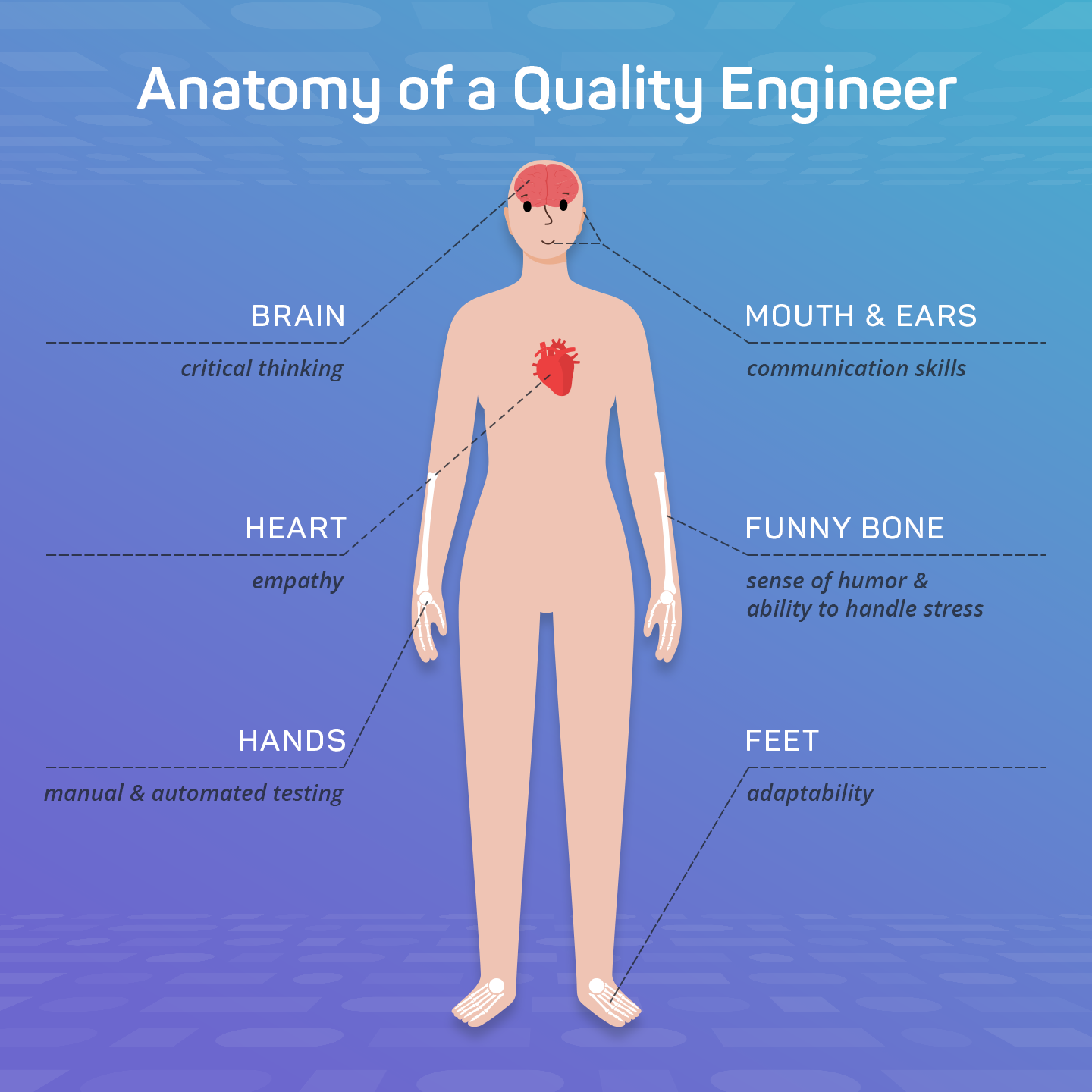Get a Free Trial
Creating, executing, and maintaining reliable tests has never been easier.
Quality engineering embraces continuous testing, data-driven testing, manual and automated testing in a culture of quality to help software development organizations build faster while also improving the user experience. Many organizations are adopting quality engineering in tandem with DevOps as their QA teams turn to automation and collaboration to streamline their quality strategy. This transformation enables quality pros to lead transformations that serve the users, the product, and their team.
But who is the quality engineer? Software testing and quality assurance are already wide ranging fields that include everyone from manual testers to SDETs to test automation engineers. What skills and qualities differentiate the quality engineer?
Quality Engineers are Agile, Empathetic, and Adaptable
Like software testing, quality engineering requires a diverse mix of hard skills and soft skills. In order to lead automation adoption, implement continuous testing across the software development lifecycle, and advocate for the end user, the quality engineer is a unique role that can be accomplished by a diverse range of people, if they have the right roadmap to build their skills. Ultimately, they need to balance technical knowledge with empathy, and be able to adapt to the rapidly changing world of software development. Let’s take a closer look at the quality engineer.
Anatomy of the Quality Engineer

- Heart - Empathy: The end user is at the heart of every quality engineering strategy. To make sure every aspect of the UI supports a delightful user experience, quality engineers must break out of the familiarity bias mindset to understand how a new user would think about the application under test. Empathy guides both manual testing and a test automation strategy to ensure that every aspect of the user journey works as expected, no matter how customers interact with an application.
- Mouth and Ears - Communication Skills: The quality engineer is the thread that connects code to customer, meaning their role is unusually spread out over the entire DevOps pipeline. To manage, the successful quality engineer has outstanding communication skills, whether it’s listening for cues to guide their testing strategy, coaching developers on when and how to use test automation, or ensuring that the team has enough information to triage a critical defect. Clear, efficient communication across email, Slack, and in-person is essential for helping software development organizations deliver quality software at a faster pace, and the quality engineer is the cornerstone of that process.
- Hands - Manual and Automated Software Testing: Both manual and automated testing play an important role in the journey to quality engineering. Automated software testing allows developers, product owners, and software testers to cover all possible user journeys, including email, multiple browsers, and APIs, without slowing down development speed. With more time on their hands, software testing teams can focus on high-impact manual testing for new features and unusual user paths. The result: a more efficient, high-impact software testing strategy that ensures customer satisfaction.
- Feet - Adaptability: Quality engineering allows quality pros to move at the speed of DevOps, even if their goal is to deploy new code multiple times per day. Building, scaling, and maintaining a software testing strategy that can adapt to an accelerating deployment cycle is one of the primary goals of the quality engineer, and they need to be quick on their feet to adapt to changing user expectations, a growing product, and evolving DevOps processes to succeed.
- Brain - Critical Thinking: Ask any software testers, test automation engineer, quality assurance specialist, or quality engineer what trait defined their career in software quality, and the answer is most likely to be critical thinking. Asking the right questions, and being able to evaluate various data points to determine the answer is foundational in any quality career, but particularly for the quality engineer. Since they rely on a wide range of manual testing and automated testing, quality engineers are at the forefront of creating data-driven software testing strategies that reflect the user journey, maintain optimal test coverage, and quickly incorporate new features.
- Funny Bone - Sense of Humor/Ability to Handle Stress: Unfortunately, quality engineers often need to deliver bad news. A test failed, a defect was discovered, or a delivery date needs to be delayed. Being able to navigate these tough situations with sensitivity and humor is essential for quality engineers.
Are You the Next Quality Engineer?
Perhaps most, or even all, of this list resonated with you as a software tester, test automation engineer, or QA manager. But even if it didn’t, there are many paths through the exciting world of quality engineering. New test automation tools are designed with low-code interfaces that make it possible for everyone to quickly create and execute automated tests, even complex end-to-end tests that include API testing. Learning these new skills on the job can be an excellent way to improve product quality and your software testing strategy while also expanding your skills. If you’re ready to join the growing ranks of quality engineers, sign up for a 14-day free trial of mabl.






